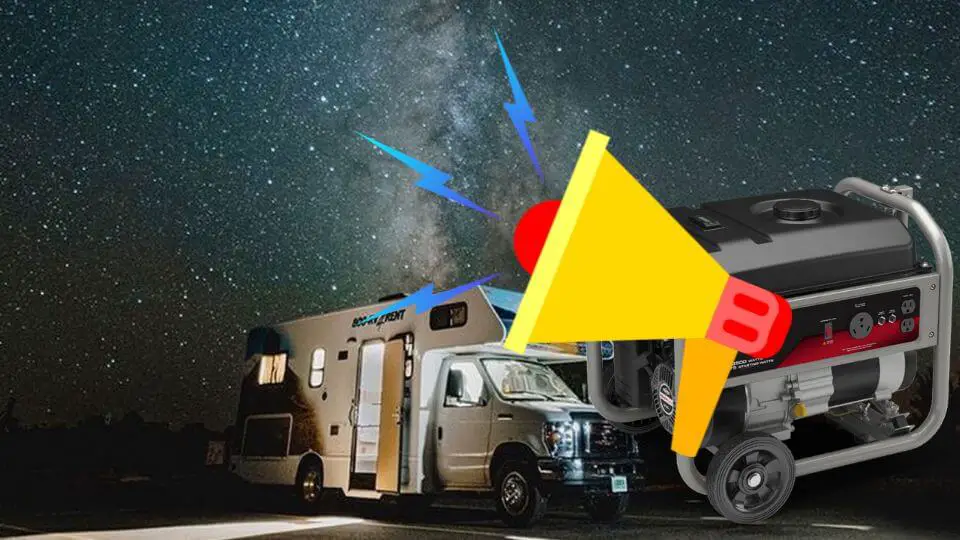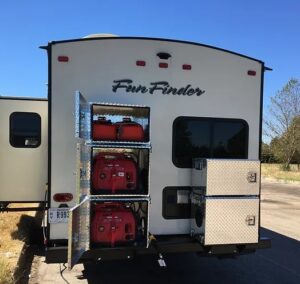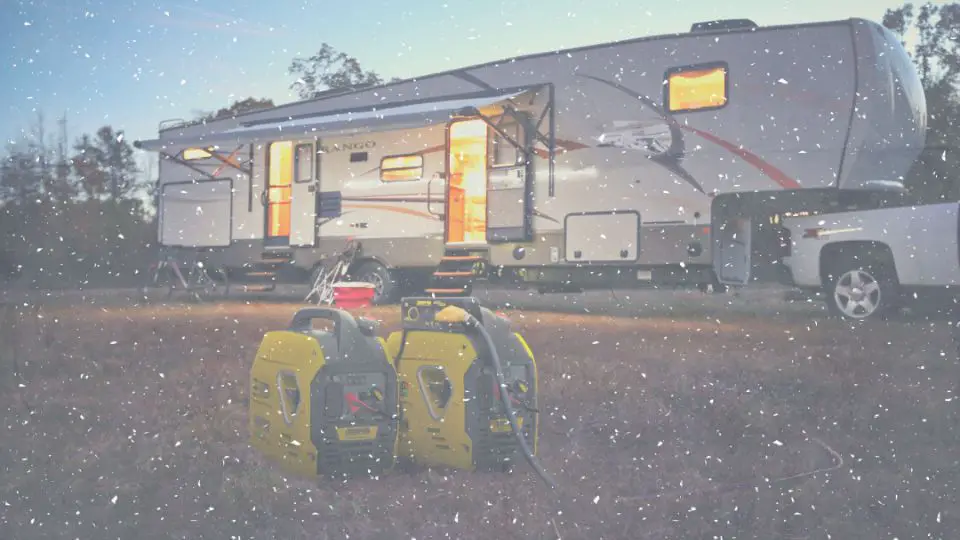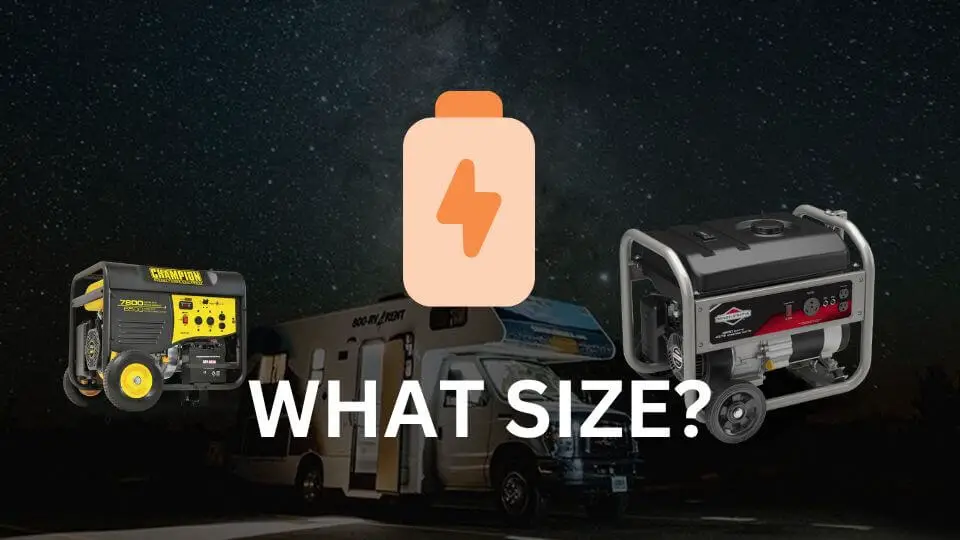This post may contain affiliate links. As an affiliate, we earn from qualifying purchases. We get commissions for purchases made through links in this post.
Sure, you can safely sleep in an RV while your generator is running. However, you must take all necessary precautions including placing a portable generator away from windows, or even better, closing the windows and doors to your RV such that no carbon monoxide can enter your camper vehicle. Your generator should also be quiet enough (ideally under 65 (dBA), possibly with additional noise protection shelter.
It is important to have the exhaust away from any holes, windows, or doors in your RV to avoid the risk of poisoning. With these measures put in place, sleeping in an RV will be safe and comfortable.
Is it okay to leave a generator running all night?
As long as your generator is serviced on a regular basis, and has enough engine oil, good ventilation, and enough fuel (gas or propane), you can leave it running all night to feed your RV air conditioning and other critical devices.
You should, however, make sure no carbon monoxide enters your RV and that the generator is not making excessive noise. It is best to purchase a quiet generator in advance so you won’t have to use the noise meter when your neighbors start complaining.
It is also important to organize a proper rain cover for a generator when it is running. The last thing you want to happen during your RV trip – is your generator getting wet. If you want to run your generator while driving, you are going to need a generator mount. A well-designed generator RV mount will also offer rain protection.
Finally, before sleeping in an RV with a generator running, always check the manufacturer’s manual to ensure you are using it correctly and safely. Better be safe than sorry!
How long can I run my generator in my RV?
The exact answer to this question depends on the type of generator you are using and how big it is. Generally, a small camping generator should be able to run for 5-8 hours continuously or even more depending on the size and load of your RV.
For example, the Champion Power Equipment 200988 4500-Watt dual fuel generator can run up to 14 hours on a single tank of gasoline and up to 21 hours on a 20-lb propane tank (under 25% load).
It’s important to keep an eye on the fuel level while running your generator and refuel when needed, plus perform scheduled maintenance that includes oil change, inspecting and replacing spark plugs, and an air filter cleaning. Doing this will help you sleep at peace in your RV while having uninterrupted power to critical devices like an AC or a refrigerator.
How do I calculate what size generator I need?
Calculating the size of a generator you need for your RV is essential to ensure that it can power all the appliances and devices you will have on board. You can calculate this by taking into account the total wattage of all the devices you want to use at once, plus 10% so that the generator can work safely in overload protection mode.
For example, if you have six devices with a total wattage of 4,000 Watts, then the size of the generator you would need is 4,400 Watts (usually you will find 4,500 Watts generators on the market). Be advised that some appliances require higher starting Watts, so you will have to account for this when choosing the size of a portable generator.
The generator size also depends on the amperage of a particular motorhome. For instance, a 50 A RV requires a larger generator than a 30 A counterpart. In most cases, you should begin with at least a 4,500W generator.
Once you determine the size of the generator needed for comfortable sleep in an RV, make sure that it is quiet and powerful enough to run your RV overnight. Additionally, make sure that the generator you chose is reliable and is getting serviced regularly. This will allow you to run it for many hours continuously and safely.
Can you run a generator while boondocking?
Yes, you can run a generator while boondocking in your RV. It is important to remember that generators produce carbon monoxide which can be hazardous and you must take all necessary precautions such as closing windows and doors, placing the generator far enough from your vehicle, and providing sufficient ventilation to prevent carbon monoxide poisoning.
It is also important to choose a quiet generator, as loud noise can be very annoying and sometimes even illegal. Make sure that your generator has enough juice to power all of the appliances you use in your RV. Additionally, you should check the manufacturer’s manual beforehand to make sure that it is being operated correctly and safely.
Conclusion
To summarize – you can safely sleep in an RV powered by a running generator, provided that it is a quiet inverter model and you follow all safety guidelines such as good ventilation, adequate fuel supply, recommended noise levels, and regular maintenance. It is important to calculate the size of your generator beforehand based on the total wattage of all devices you plan to use simultaneously. Finally, always make sure to read the manufacturer’s manual before sleeping in an RV with a generator running. Happy camping!





1 thought on “Can you sleep in RV with generator running?”
Comments are closed.